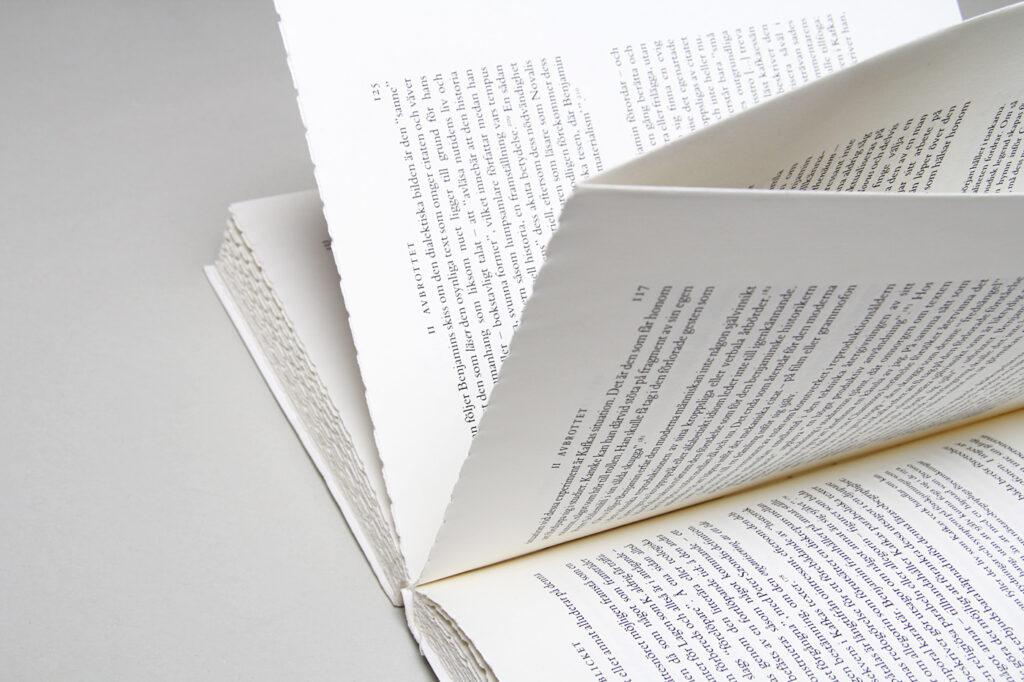



Det kritiska ögonblicket:
Hölderlin, Benjamin, Celan
(The Critical Moment)
Information · Cover · Reviews
Information
Scholarly essays · In Swedish · Stockholm: Norstedts, 1991, 323 pages · Cover image: Paul Klee, “Physiognomischer Blitz”, 1927 · ISBN: 91-1-912672-7 · English language rights available
Cover
A defense of the detail and a plea for textual complication, The Critical Moment examines various expressions of suddenness. While each chapter — devoted to works by Longinus, Friedrich Hölderlin, Walter Benjamin, Paul Celan, and Paul Klee — can be viewed as a treatment of a particular oeuvre, it may also be read as an analysis of the relationship between a certain trope or figure and textual instantaneity. Among the rhetorical events studied are anacoluthon and apostrophe, transport and cesura, quotation and disjunction, chiasmus and inversion.
Consisting of readings of primarily modernist texts, the book particularly discusses moments of textual self-reflection. Such “spots of time,” in Wordsworth’s phrase, need not contain a direct comment by the text upon itself; they need not take on a metapoetic character. Yet the fact that a text reflects on linguistic phenomena has consequences for its reading; in an important sense, the text has already anticipated that which the reader brings to bear on it. The Critical Moment proposes to term such moments “critical” insofar as they can be demonstrated to address questions of reception.
The Critical Moment goes straight to the core of today’s concerns within the field of literary criticism. The study treats important problems at the intersection of literary history and aesthetic ideology, and its treatment of some of the most important writers of the modernist canon offers new insights of great value to both the specialist and the general reader.
Reviews
“It’s clear that the rhetoric of this study is not the result of a fleeting flash of insight. It has been very carefully prepared. And many of the difficulties that the book doesn’t avoid but rather pivots around have this . . . character of inevitability . . . As a project, The Critical Moment is extraordinarily interesting and worthy of being followed closely.” — Johan Dahlbäck, Tidskrift för litteraturvetenskap
“[Aris Fioretos’s readings of Hölderlin, Benjamin, and Celan] are both sharp and conscientious, and his ability to endow rhetorical figures with meaning is worthy of great respect.” — Magnus Eriksson, Svenska Dagbladet
“Attention. The ability to observe the insignificant, to explicate the finest print of being. And then, suddenly, silence — because without silence, there is no renewed attention. Now Aris Fioretos presents an extremely well-versed plaidoyer on this topic, the close relatives of which are said to be ‘the literary detail’ and ‘the textual complication.’ He does right to do so. The Critical Moment, as this learned tome is entitled, is more than a solid contribution to the genre; it is marked by both cunning and desire. . . . In the middle of the book, there’s an absolutely splendid reading of Walter Benjamin’s work. Here, Fioretos takes the definitive step from skilled accordion player to a sensitive concerto pianist of absolute world class. . . . The truth, Benjamin argued, always seems to be out of focus, to pin it down is to destroy its revelatory power. Fioretos turns this insight into practice by having literature and criticism cross-fertilize one another. As an attentive reader without preconceived notions, he scrutinizes Benjamin’s manner of presentation; understanding does not evolve as a rational dissection, but as a living image, as an insight suddenly enflamed and just as suddenly vanishing. This is exactly how I would like to consider attention: as a critical act that knows how to quickly return to silence. For a few saturated moments, it has found, in Aris Fioretos, its practitioner.” — Thomas Götselius, Norrköpings Tidningar
“Not every study in literary criticism makes its reader think of such exciting matters as signs in heaven and rockets, thunderbolts and thunder. But that is they way of Aris Fioretos’ The Critical Moment. In one way, the book is a study of the place of lightening in literature. But foremost, it enters one of the oldest and most central discussions of aesthetics. What is it that makes you and me, as readers, feel elated and transported by certain texts? . . . I would consider myself lucky if I could develop my argument with the same acumen as Fioretos demonstrates when he develops his. . . . [This] is the most sublime Swedish dissertation in comparative literature that has been presented in a long time.” — Stefan Jonsson, Dagens Nyheter
“. . . something of a pioneering work . . .” — Per Erik Ljung, Res Publica
“. . . You get the feeling that . . . literary criticism has reached a cross-roads with achievements of this sort . . .” — Jesper Olsson, Östgöta-Correspondenten